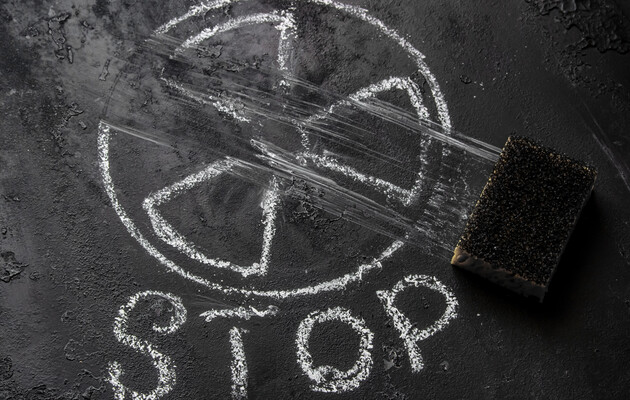Although Lukashenko has agreed to host nuclear bases, it seems that their construction has not even started yet.

Like much of what Vladimir Putin says about nuclear weapons, his words that Russia will begin to store their bombs in Belarusmay turn out not to be what they seem.
Last February, Putin announced that he was putting Russia's nuclear arsenal on high alert. But there have been no noticeable changes in the country's nuclear policy or any unusual movements of its weapons, – writes The Guardian.
Putin and the leader of Belarus, Alexander Lukashenko, have been hinting at certain agreements regarding nuclear basing for some time. More than a year ago, the Belarusian autocrat organized a referendum to change the constitution to make this possible. Now Putin is threatening to take a few more steps in this direction: in early April, he will begin training Belarusian crews to pilot planes with nuclear bombs, and by July 1, he will complete the construction of storage facilities for tactical nuclear weapons.
Nuclear weapons experts are skeptical of such an ambitious timeline, pointing out that Russia has been working to build a nuclear weapons storage facility in Kaliningrad for at least seven years, and it is still unclear whether the bombs actually arrived there. There are no satellite images that could indicate that something like this is being built in Belarus.
“I've looked at some of the alleged bases and I don't see anything that would indicate a nuclear storage facility is being built. But it cannot be ruled out. You can have no doubt that many people are currently combing the country,” said Hans Christensen, director of the Nuclear Information Project of the Federation of American Scientists.
Read also: Russia will not change its plan to deploy nuclear weapons in Belarus – the Kremlin
Putin hinted at preparations for his nuclear announcement earlier this week, saying Russia would respond to Britain's decision to supply Ukraine with armor-piercing projectiles, which contain depleted uranium. Such projectiles are quite toxic, require special handling and pose an environmental threat, but they are in no way nuclear weapons. In his speech on Saturday, Putin did not focus on the issue.
Instead, he focused on Moscow's long-standing dissatisfaction with the United States' nuclear sharing arrangements with five allies: Germany, the Netherlands, Belgium, Italy and Turkey. . Under this agreement, the US keeps B61 gravity bombs (about 100 in total) in these countries, and their aircrews are trained to fly the planes carrying these bombs in case of nuclear war.
Russia claims this violates the 1968 Treaty on the Non-Proliferation of Nuclear Weapons (NPT). Just last week, Putin made a joint statement with Xi Jinping: “All states possessing nuclear weapons must refrain from deploying them abroad, as well as withdraw nuclear weapons already deployed abroad.”
Putin's statement regarding Belarus suggests that he has changed his mind about this principle since Tuesday. However, he can count on the global reaction to be muted by years of general dissatisfaction with the US-NATO nuclear weapons sharing arrangements.
These arrangements do not technically violate the NPT, as they existed before the treaty was signed. The Soviet Union accepted them. Especially since at that time Moscow could place its nuclear weapons in Belarus or any other Soviet republic. But when Belarus, Ukraine and other republics became independent, it lost this right.
Read also: Putin's three goals: why does he need nuclear weapons in Belarus
The US deal with its allies and Russia's proposed deal with Belarus bypass the NPT restrictions by not formally handing over weapons to the government of the country where they are located until war breaks out. However, for non-nuclear states and arms control advocates, this is a cynical workaround that goes against the spirit of the NPT.
The Barack Obama administration viewed the withdrawal of the B61 from Europe as a step toward disarmament. But some European allies have resisted any move that would signal a thinning of the nuclear umbrella. And then relations with Moscow deteriorated again. Instead of removal, the bombs were modernized. A new version of the B61-12 is now in the process of being transported to Europe.
“The new bombs are a whole new wave of weapons arrival, and this is causing serious concern among the European population. Putin saying this and threatening to do the same is calling attention to a problem that has existed for quite some time and that the rest of the world is also trying to pay attention to to solve,” said Susie Snyder, program coordinator for the International Campaign to Abolish Nuclear Power. weapons.
Also read: US still sees no signs of transfer of nuclear weapons from the Russian Federation to Belarus – Kirby
Christensen claims that Putin is largely to blame for the continued presence of the B61 in Europe, because he occupied Crimea and part of Donbass in 2014.
Related video
“I have no doubt that if Putin had not started what he has been doing since 2014, it is very likely that nuclear weapons would have already been withdrawn “, the expert believes.



